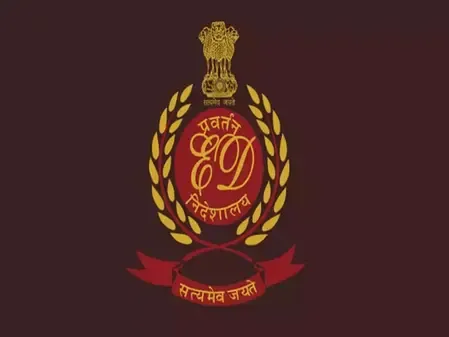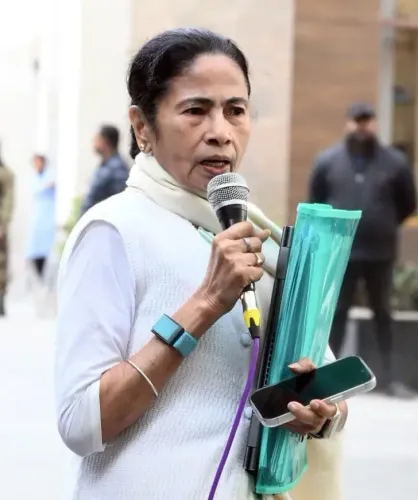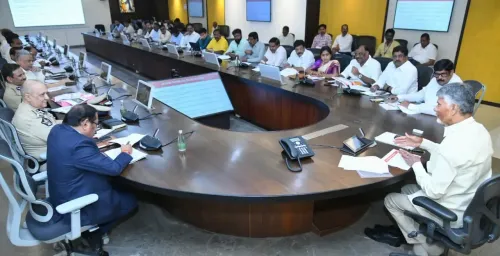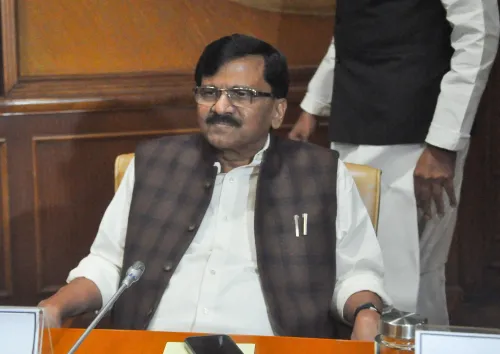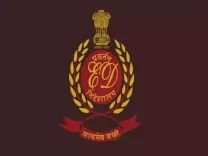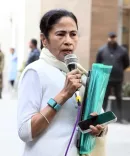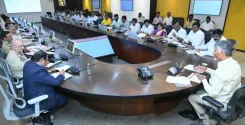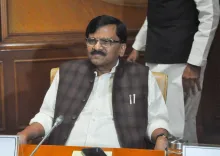How Did BRICS Leaders Condemn the Pahalgam Terror Attack?
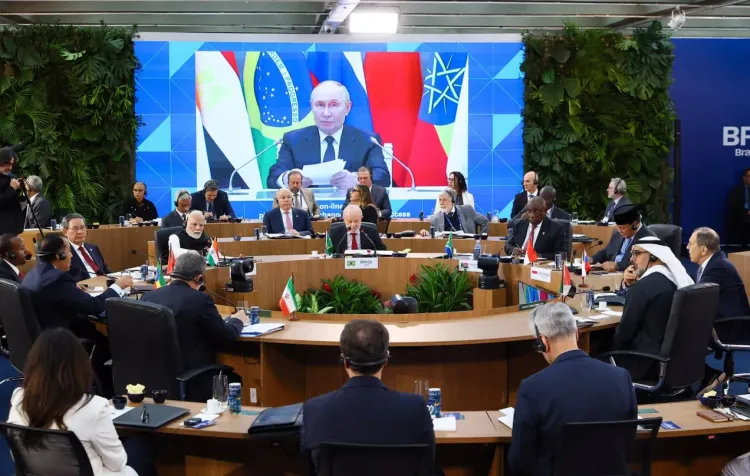
Synopsis
Key Takeaways
- BRICS leaders condemned the Pahalgam terror attack.
- Commitment to fight cross-border terrorism emphasized.
- Zero tolerance for terrorism is a priority.
- Importance of international cooperation highlighted.
- Call for action against UN-designated terrorists.
Rio de Janeiro, July 6 (NationPress) In a significant diplomatic achievement for India under Prime Minister Narendra Modi's leadership, BRICS leaders vehemently condemned the heinous Pahalgam terror attack that occurred on April 22. They reaffirmed their dedication to addressing the cross-border movement of terrorists, terror financing, and the existence of terrorist safe havens, while also emphasizing the need for coordinated actions against all UN-designated terrorists and entities.
During this brutal act, 26 innocent tourists lost their lives in a Pakistan-sponsored attack in Jammu and Kashmir, an atrocity that has drawn widespread condemnation globally.
The 'Rio de Janeiro Declaration', which emerged from the first day's discussions at the 17th BRICS Summit in Brazil, expressed a strong condemnation of any form of terrorism as criminal and unjustifiable, irrespective of its motivations, and called for a united stand against such acts.
The declaration condemned the April 22 terrorist attack in Jammu and Kashmir, highlighting that at least 26 individuals were killed and many others injured. The leaders reiterated their commitment to combatting terrorism in all its variations, including the cross-border movement of terrorists, financing of terrorism, and the existence of safe havens.
Investigations into the Pahalgam incident revealed communication networks linking the terrorists to Pakistan. A group identifying itself as The Resistance Front (TRF), which is affiliated with the UN-proscribed Pakistani terror organization Lashkar-e-Taiba, claimed responsibility for the attack.
In this barbaric act in Pahalgam, terrorists from Pakistan targeted Indian and Nepalese nationals, segregating them based on their religion before carrying out the attack.
The BRICS leaders jointly stated, "We reaffirm that terrorism must never be linked to any religion, nationality, civilization, or ethnic group. All those involved in terrorist activities must be held accountable and brought to justice according to national and international law."
They emphasized the need for zero tolerance towards terrorism and rejected double standards in counter-terrorism. The declaration stressed that it is the primary responsibility of states to combat terrorism while adhering to their obligations under international law, including the United Nations Charter and relevant conventions.
The leaders expressed support for the initiatives of the BRICS Counter-Terrorism Working Group (CTWG) and its five subgroups, which are based on the BRICS Counter-Terrorism Strategy and the Counter-Terrorism Action Plan.
They look forward to enhancing counter-terrorism cooperation and called for the swift adoption of the Comprehensive Convention on International Terrorism within the UN framework, urging concerted actions against all UN-designated terrorists.
Recently, National Security Advisor Ajit Doval highlighted the horrific Pahalgam attack alongside India's Operation Sindoor aimed at dismantling terror infrastructure across the border. He stressed the urgent necessity to eliminate double standards in fighting terrorism.
During the 20th meeting of the Security Council Secretaries of the Shanghai Cooperation Organization (SCO) Member States in Beijing, Doval expressed India's deep concerns regarding the ongoing threats from UN-designated terror groups such as Lashkar-e-Taiba (LeT) and Jaish-e-Mohammed (JeM), which are state-supported terror outfits based in Pakistan, alongside Al Qaeda and ISIS.
In his address at the SCO meeting, he highlighted the critical need to discard double standards in counter-terrorism and take decisive actions against UN-listed terrorists and their networks.
India has called upon SCO members to hold accountable those responsible for organizing, financing, and sponsoring acts of cross-border terrorism and to ensure they face justice.


